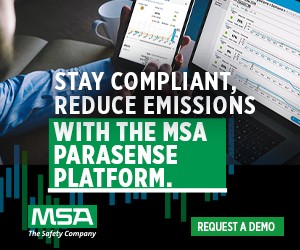IIAR Unveils Educational Certificate Program
The certificate program will allow design engineers, installers and responsible parties show they have documented and standardized training for ammonia refrigeration systems. The certificate program will enable end users, designers and manufacturers to demonstrate their comprehension of the standards and other engineering safety elements. Which is particularly useful when regulators visit a facility.
“We have visited the Washington D.C. headquarters for OSHA and the EPA and found both regulatory agencies to be very receptive to our efforts to document the attainment of essential knowledge,” said Mark Stencel, IIAR chairman and director of business development at Bassett Mechanical.
OSHA’s standard on Process Safety Management of Highly Hazardous Chemicals (1910.119(g)) requires that employers provide workers who use, store, move, manufacture and handle chemicals with training on those chemicals’ hazards.
Employers must also implement written operating procedures that provide clear instructions for working safely with these chemicals. “Certainly, in discussions with regulators, being able to produce a certificate documenting your knowledge of our industry standards and Recognized and Generally Accepted Good Engineering Practice has a lot more validity than ‘I’ve been doing this for years’,” Stencel said.
The training session includes eight live webinar training sessions that run through the end of January. The first webinar for the IIAR-2 certificate program took place in September.
Each session is also recorded, so that “people can catch up at their own pace if they miss one. They can still sign up or catch up through the learning management system,” said Trevor Hegg, vice president of industrial refrigeration product development at Evapco.
Testing to obtain the certificate will take place at the annual IIAR conference in February.
Going forward, IIAR also hopes to offer more exam opportunities at other venues throughout the year. “As this program grows, to offer exams every year at the conference would probably become a distraction at the conference,” Hegg said.
Bob Czarnecki, chairman of the IIAR standards committee and one of the major contributors to the IIAR-2 training program content, said more than 90 people took part in the first webinar.
Mark Stencel, IIAR chairman, said the first sessions have gone very well. “The slides have been professionally prepared and supplemented by field images provided by our members,” he said, adding that speakers have largely volunteered from the IIAR2 development committee, ensuring strong subject-matter experts are covering the material.
Participants have asked good questions during the presentations and those questions have been routed to the Standards Committee for review and formal, thoughtful response, Stencel said.
The training on IIAR-2 is just the beginning. The IIAR board’s latest strategic planning session concluded with a consensus that the next phase would include a combined program for IIAR-4, IIAR-5 and IIAR-8, as well as a parallel development covering PSM/RMP material. Stencel said the standards collectively cover installation, start up, commissioning and decommissioning of closed circuit ammonia refrigeration systems, which is “essentially a cradle-to-grave view of the installation process.”
Hegg said IIAR’s Education Committee has created a Certificate Program Subcommittee that will be working to get more people involved in the process. “That includes finding developers, content reviewers and people to draft exam questions. They’ll also take care of the planning of future programs,” Hegg said. “This ensures the material being created is accurate and valuable.”
Because the program provides a structured means for education as well as an unbiased means for interested parties to prove their knowledge, one of the goals is to allow participants to receive credit for continuing education hours if they are required to complete them.
Hegg said the committee is currently laying out a global picture for what the program will eventually evolve into. “We’re looking at all standards and documents IIAR offers and looking at having different branches of specialties,” he said. “You could have basic knowledge, operator knowledge or master knowledge. It offers the membership an opportunity to focus where their primary function is in their daily life.”













